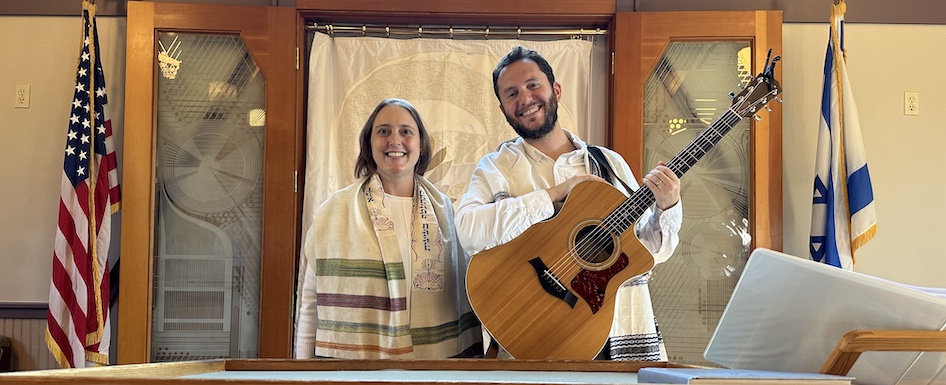About the High Holy Days

Rosh HaShanah
Rosh HaShanah (“Head of the Year”) is observed on the first day of the month of Tishrei. It marks the beginning of the High Holy Days, which culminates on Yom Kippur. The customs and symbols of Rosh HaShanah reflect the holiday’s emphasis on both happiness and humility. On Rosh HaShanah, we sound the shofar, use round challah, and eat apples and honey for a sweet new year.
Selichot (“forgiveness”) is the candlelight service marking the Jewish week preceding Rosh HaShanah. Held after sundown on Saturday, this service begins our cheshbon nefesh (“accounting of the soul”) as part of t’shuvah (“return”) to our truest selves. We begin with dessert, Havdalah and a worship service; then close the evening in quiet reflection as the parokhet (ark curtain) and Torah covers are prepared for the coming High Holy Days.
Tashlich (“casting off”) is a symbolic dispersal of our errors to the winds and the sea, after we have begun the process of t’shuvah. Our Tashlich service is held at a local lake or river on Rosh HaShanah afternoon.
Yom Kippur
Yom Kippur (“Day of Atonement”) is the holiest day in the Jewish calendar. In three separate passages, the Torah states, “the tenth day of the seventh month is the Day of Atonement. It shall be a sacred occasion for you: You shall practice self-denial.” (Leviticus 23:27). We fulfill this commandment by fasting, which also enables us to put aside our physical desires and to concentrate on our spiritual needs through prayer, repentance and self-improvement. It is customary in the days before Yom Kippur to seek out friends and family whom we have wronged and ask for their forgiveness.
The Shabbat Shuvah (“The Shabbat of Return”) Service, occurs on the Saturday between Rosh Hashanah and Yom Kippur and is considered to be a time of reflection leading up to the Day of Atonement.
Yom Kippur concludes with a Yizkor (“remembrance”) Memorial Service, where the names of members’ immediate family are read aloud.
